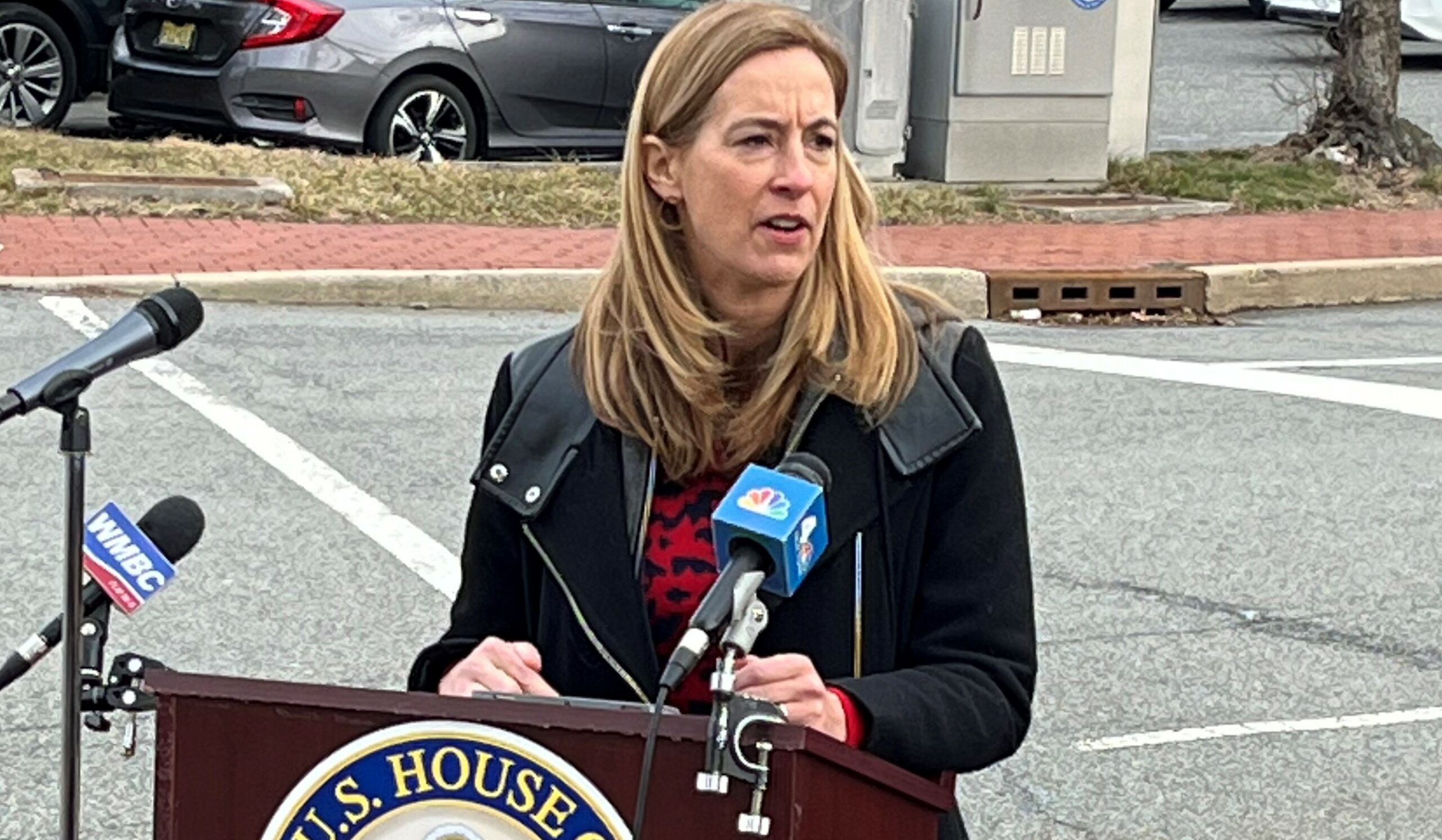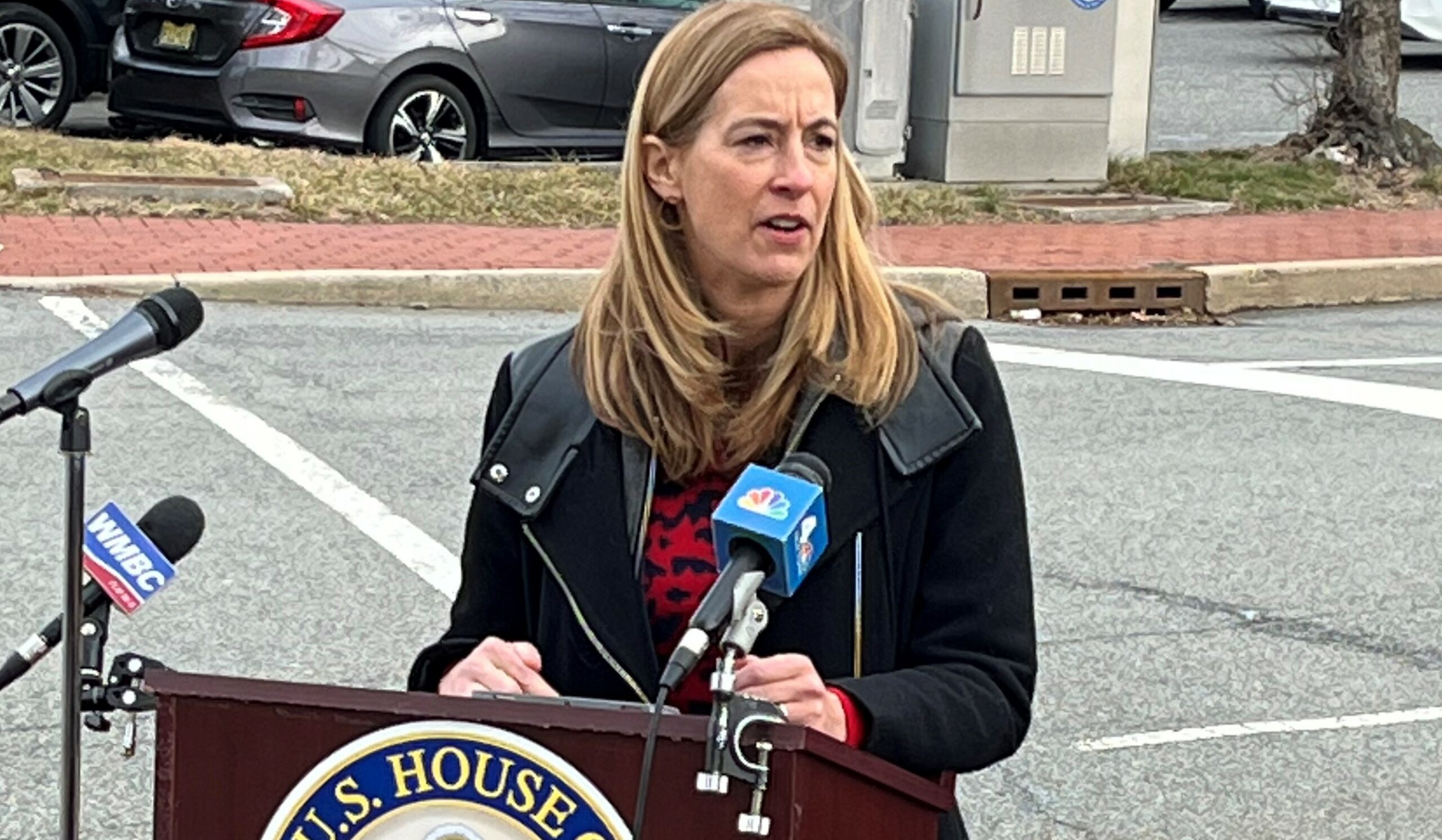
RANDOLPH – When it came time for questions at Mikie Sherrill’s town hall Thursday evening, one of those asking was Joseph Labarbera, the Republican chair in very “red” Sussex County.
For one thing, it showed that the event was not “scripted.”
Labarbera, a Marine, brought up the U.S. military pullout from Afghanistan two years ago this August.
He told Sherrill, a Navy vet, that if either one of them had been involved in such a botched operation, they likely would have been court martialed. He said the whole episode still sticks in his craw.
The Afghanistan departure and a terrorist attack that killed 13 U.S. soldiers was a foreign policy disaster by any measure.
It also was a political calamity for the Biden Administration – and one that Republicans keep raising. Some of the relatives of the fallen soldiers appeared at last month’s GOP convention.
Sherrill more or less agreed with Labarbera’s summation.
“I think it is still something that sticks in all our craws,” she said.
Labarbera had brought up the military equipment left behind. Sherrill acknowledged that, but said it’s also “about the people.”
She spoke of many Afghans who risked their well-being, or even their lives, to help the U.S. military during its 20 years in the country. She said the U.S. has gotten many of those people out, but there’s more to be done.
The congresswoman also spoke with regret about the plight of young Afghan women who under the Taliban have lost the relative freedom they had growing up.
Another topic that popped up – not surprisingly – was immigration.
Border crossings have been down of late, but this remains a key issue for the GOP – just like abortion rights is a key issue for the Dems.
Sherrill said any immigration reform, which she hopes will finally come next year, must include a number of factors:
Border enforcement so that we know who is coming across.
A pathway to citizenship for those who have lived and worked in the U.S. for years without any legal problems.
And an acknowledgement that the country needs migrant or guest workers, She said strong deportation measures in Congress have been opposed by rural farms who need the labor that migrants provide.
Sherrill has criticized the so-called SALT cap since arriving in Congress in 2019. This limits the federal income tax deduction for state and local taxes to $10,000.
Republicans are unlikely to budge on the cap, which came about via the Trump tax reform bill in 2017, but there is some hope ahead.
That act included a “sunset clause” that kicks in next year.
So the plan is to “let the cap lapse,” she said.
Sherrill has had a number of town halls during her tenure and most have been well attended. This one at County College of Morris drew about 250 and was also streamed on Facebook Live. Randolph in Morris County is on the western edge of Sherrill’s 11th District.
The congresswoman is seen as a 2025 gubernatorial candidate, but no one asked her about that.
But she is running for reelection this fall against Republican Joseph Belnome, who was in attendance.
Belnome, actually, put himself in the first row, but was not selected to ask a question.
,
(Visited 730 times, 122 visits today)
Marine Corps General Kenneth Sherrill faced tough questions from a Marine during a recent discussion on the withdrawal of American troops from Afghanistan. The exchange, which took place at a military event in New Jersey, highlighted the complexities and challenges of the decision to end the United States’ involvement in the war-torn country.
The Marine, who was not identified in the report by Insider NJ, asked General Sherrill about the implications of the withdrawal for the security and stability of Afghanistan. The Marine expressed concerns about the potential for a power vacuum to be created by the departure of American forces and questioned whether the Afghan government and security forces would be able to maintain control in the absence of US support.
General Sherrill acknowledged the Marine’s concerns and emphasized that the decision to withdraw from Afghanistan was a difficult one that required careful consideration of the risks and benefits. He explained that the US military had been working closely with Afghan security forces to build their capacity and capabilities over the years, but ultimately, it was up to the Afghan government and people to determine their own future.
The discussion also touched on the broader implications of the withdrawal for US national security interests and regional stability. General Sherrill stressed that while the US was committed to supporting Afghanistan in its transition to a more stable and secure country, it was important to recognize that the situation on the ground was complex and evolving.
The exchange between General Sherrill and the Marine underscored the challenges and uncertainties surrounding the withdrawal of American troops from Afghanistan. It also highlighted the importance of engaging in open and honest discussions about the implications of such decisions for both US national security interests and the stability of countries like Afghanistan.
As the US continues to navigate its withdrawal from Afghanistan, it will be important for military leaders like General Sherrill to address concerns and questions from service members and the public. By fostering transparency and dialogue, the military can help build understanding and support for its decisions while also ensuring that the voices of those directly impacted by these decisions are heard.

